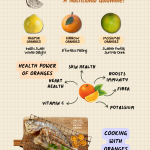Wondering if it’s safe to keep cooking with oil after it’s been opened? Here’s a guide on how long oil lasts and when it goes bad.
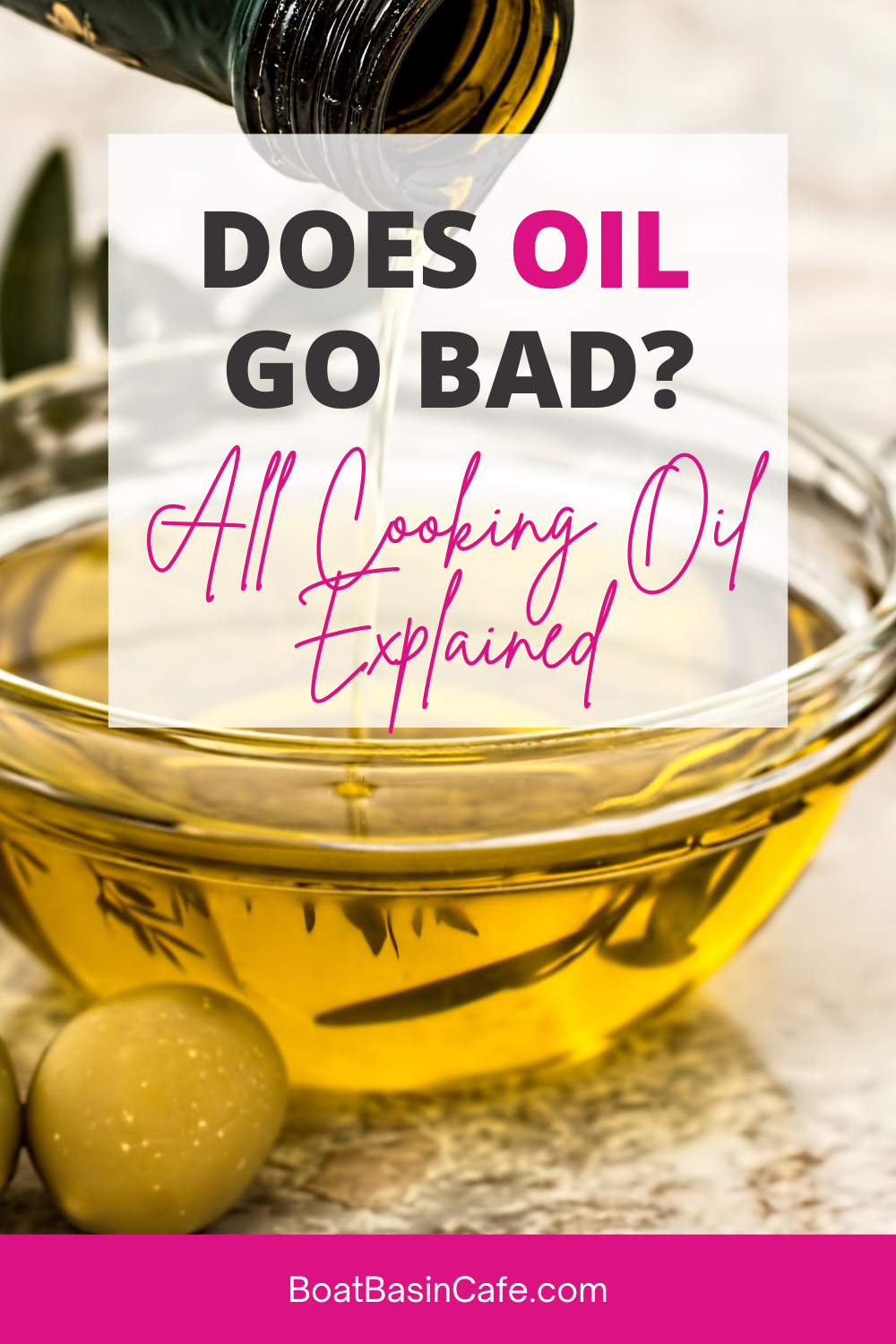
Cooking oil is a staple in any pantry.
However, after your oil has been sitting in the cupboard for some time, you may be wondering: could oil go bad?
After all, none of us want to use expired ingredients for our recipes!
The truth is, vegetable oil can go bad, with certain oils lasting longer than others.
In this article, we’re covering shelf life, proper storage conditions, and tips on how to tell when your oil has spoiled. How long does vegetable oil last? Read on!
Does Oil Go Bad? How Long Does Vegetable Oil Last?
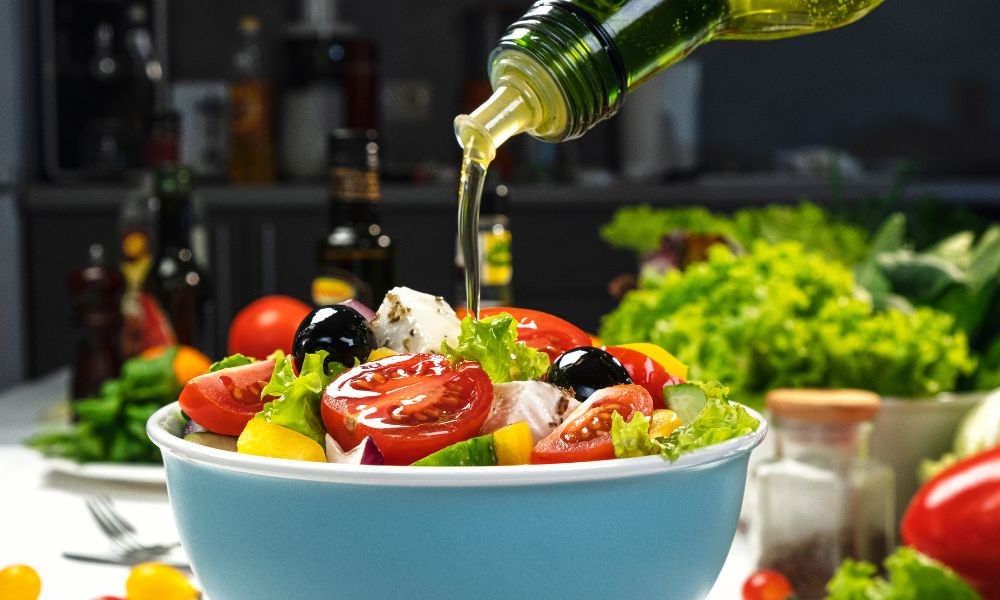
The shelf life for most cooking oils vary. Oils with polyunsaturated fats like canola oil can spoil quicker in comparison to those with monounsaturated fats. Olive oil is an example of the latter.
Freshness also depends on how you store cooking oil, and whether the bottle has been opened or not. There’s also more chance of it lasting when you store oil in a cool and dark place.
Everything we provide below is only a rough estimate of an oil’s shelf life. You can check the best by date to make sure when your oil will spoil!
Vegetable Oil Shelf Life: The Complete List
| Types of Cooking Oil | Unopened Shelf Life | Opened Shelf Life |
| Canola Oil | 2 years | 6 months to a year |
| Olive Oil | 18-24 months | 12-18 months |
| Corn Oil | 1 year | 6 months |
| Avocado Oil | 1-2 years | 6 months |
| SoyBean Oil | 1 year | 2-3 months |
| Peanut Oil | 1 year | 6 months |
| Sunflower Oil | 2 years | 1 year |
| Sesame Oil | 1-3 years | 9-12 months |
| Safflower Oil | 2 years | 1 year |
| Palm Oil | 1 year | 6 months |
| Grapeseed Oil | 6 months | 3 months |
| Coconut Oil | 2 years | 1 year |
| Almond Oil | 1 year | 6 months |
How to Know When Oil Has Gone Bad
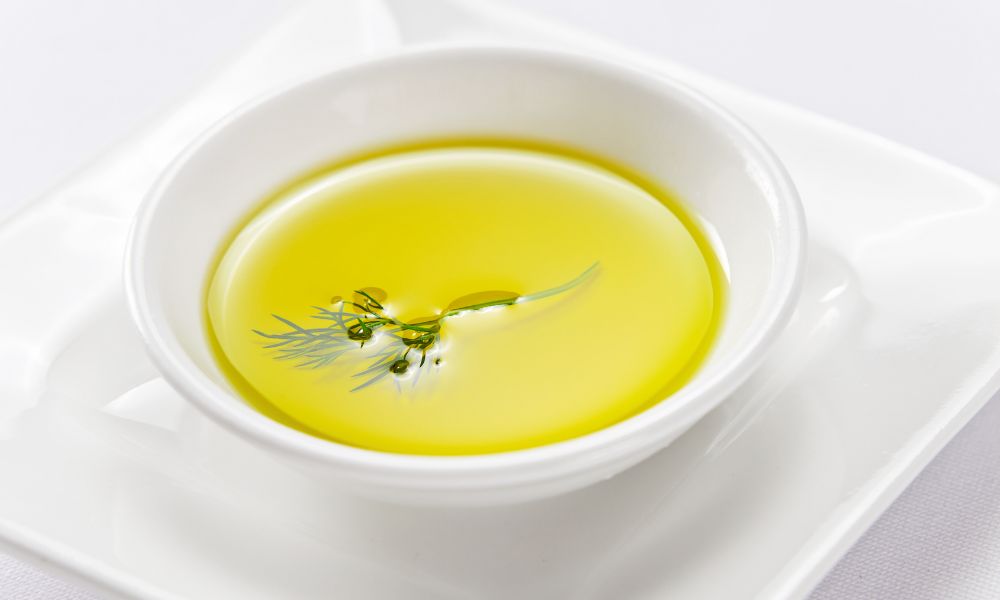
Shelf life is good to remember. However, there may be times where you have no idea when you bought or opened vegetable oil.
In that case, how can you tell if vegetable oil has gone bad?
It’s pretty easy to tell with these signs:
01 Pungent Odor
Open the vegetable oil bottle and give it a sniff. Expired oil smells like chemical solvent.
If your oil smells like old paint fumes or nail polish remover, it may be time to get rid of it and buy fresh oil at the store. Remember: fresh oil must have a neutral aroma. Rancid oil will make itself known!
02 Sour Taste
While you’re giving it a sniff, a taste test can confirm your suspicions, too.
Rancid oil will taste sour, instead of the neutral flavor we all know well.
03 Mold Around The Seal
Sometimes, you may not have to go as far as smelling or tasting anything. Taking a look at the unopened vegetable oil seal is enough.
If there’s mold growing around the seal, it’s time to throw that vegetable oil in the trash and buy a new one.
Tips to Store Cooking Oil Properly – and Make It Last
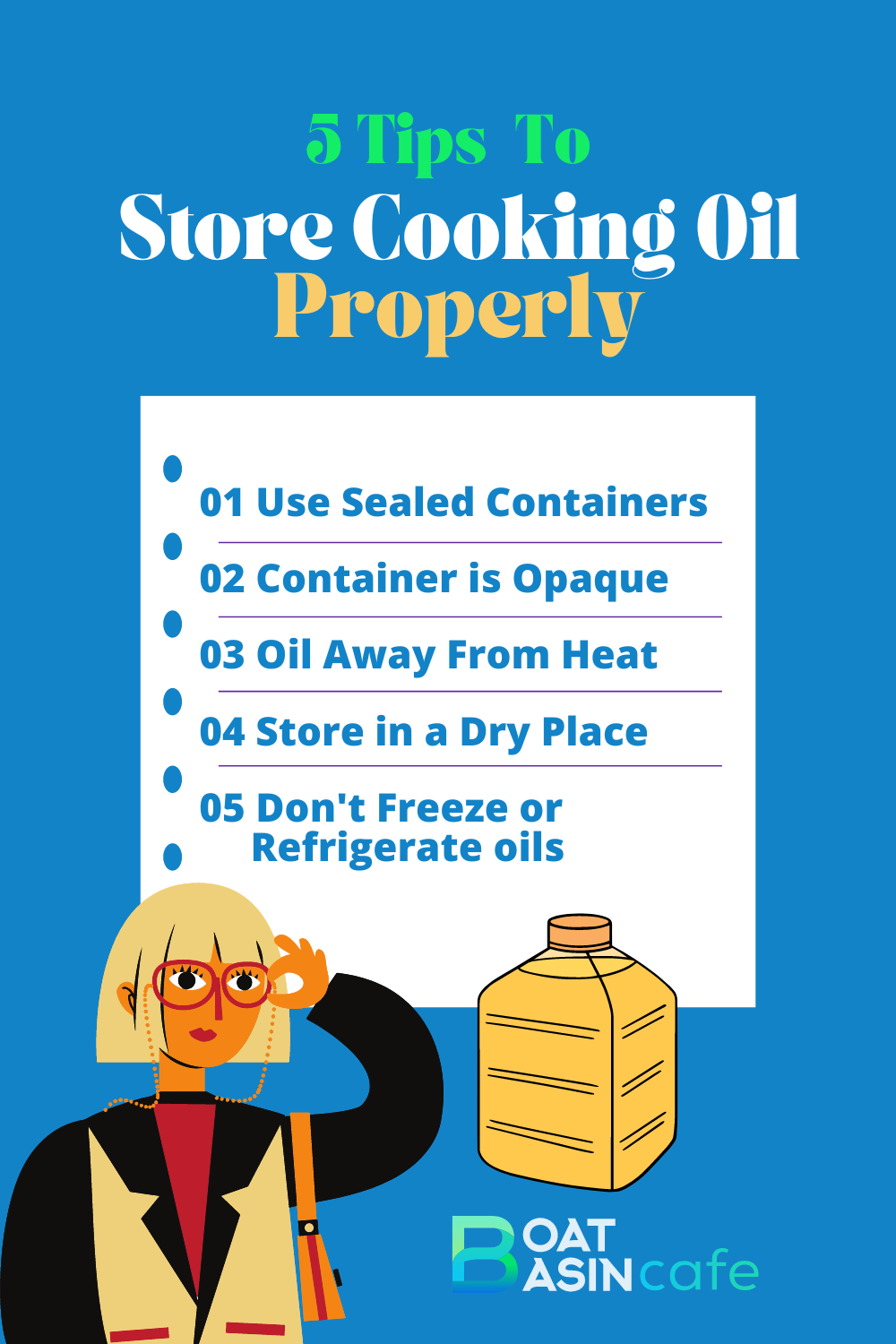
How long vegetable oil lasts depends on proper storage. Here are our tips and tricks to make sure your cooking oil is stored properly:
01 Use Tightly Sealed Containers
Vegetable oils deteriorate faster once exposed to oxygen. Use tightly sealed bottles or jars to make sure oxidation doesn’t happen while you’re not using your oils!
A secure container also makes sure your vegetable oil doesn’t accidentally spill.
02 Make Sure The Container is Opaque
If your cooking oil is away from light as much as possible, then it won’t go bad as quickly. Opaque containers or dark glass can help!
However, most cooking oils come in transparent, plastic bottles. You can either transfer your vegetable oil to a different, airtight container or store it in a cool, dark place.
03 Place Vegetable Oil Away From Heat
We don’t just mean the sun! You should also place your cooking oil away from heat-generating appliances in your kitchen, like the stove or microwave.
04 Store Cooking Oil in a Dry Place
Water and oil don’t mix well, and can actually make the vegetable oil go bad. Make sure your oil is stored in a dry and cool place.
05 Don’t Freeze or Refrigerate Vegetable Oils
Vegetable oil doesn’t work the same way food does! Instead of keeping the oil fresh longer when you refrigerate it, it will spoil much faster.
The cold temperature, for one thing, won’t make it have a longer shelf life.
Plus, once you thaw out the oil, the oxidation process will be quicker. As a result, you’ve cut down on the oil’s shelf life instead of extending it.
However, you shouldn’t worry if you’ve refrigerated your oils. They may look cloudy or have become solidified, but they should still be good for some time.
Remember: oil shelf life is best extended without exposure to heat, light, and air. Store vegetable oils in proper storage conditions. Keep oil inside a cool and dry place.
Can Expired Oil Make You Sick?
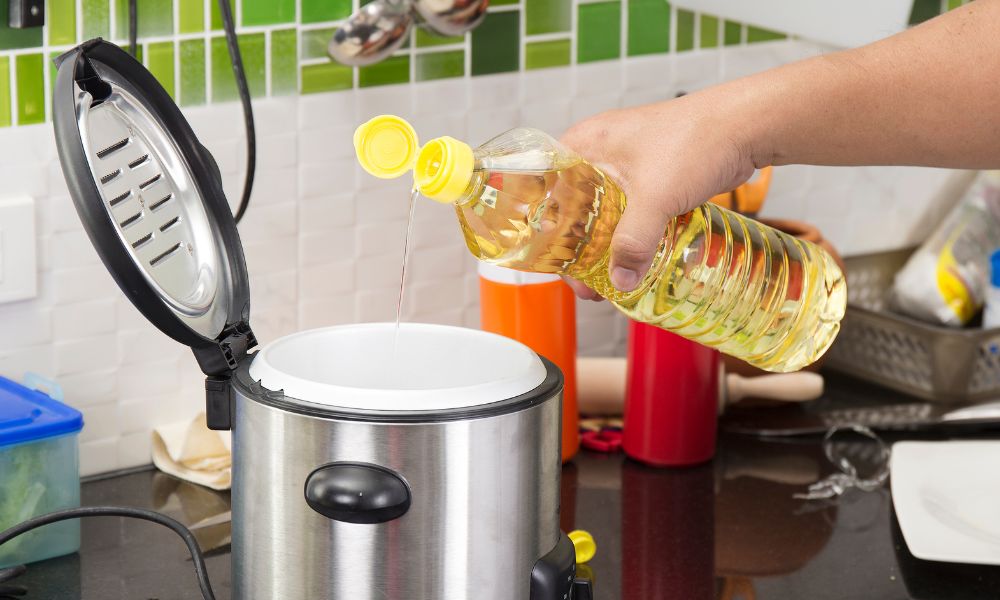
No, expired oils won’t make you ill right away. However, once vegetable oil is bad, the rancidification process will have adverse effects on your body over time. Your immune system will take a hit!
Even if rancid vegetable oil won’t make you sick or kill you, it will leave your dishes with an unpleasant taste. Trust us — the food won’t be as tasty with rancid oil.
It’s best not to take a risk. Store vegetable oil properly, and look out for signs of spoilage. Do a taste test, sniff out the oil, and look for signs of mold at the seal.
Where to Use Your Cooking Oils
If your vegetable oil is slowly approaching its best-by date, it’s best to use them up before they go bad. Just letting the oil sit there as it turns rancid isn’t advisable!
As long as the vegetable oils still retain quality, you can use them for the following:
01 As Salad Dressing
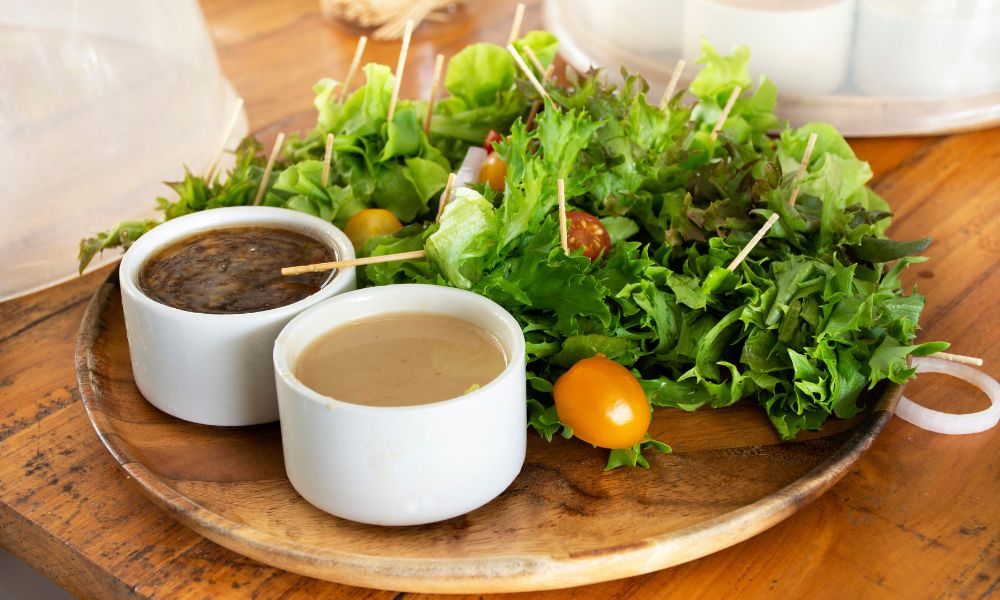
You can use a variety of oils for salad dressing! Sesame oil, extra virgin olive oil, peanut oil, avocado oil, soybean oil and almond oil will bring out delicious flavors in your salads. You can mix and match other oils with vegetables to see which one fits your dish the best.
Aside from using just the oils themselves, you can also mix them with different vinegars to make a vinaigrette. You can also store them for longer in the fridge.
02 As Cooking Oil for Pan Frying and Deep Frying
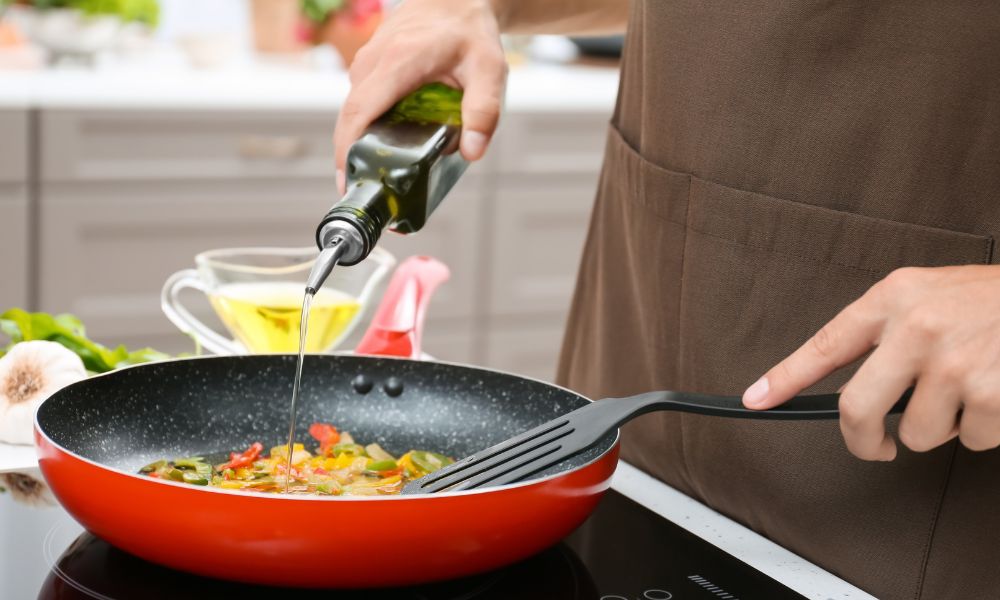
Common oils can be used whether you’re sautéing, making Asian dishes such as a stir fry, or just frying something simple in the pan.
Canola oil, corn oil, and coconut oil, for example, are great for just about everything — from sautés to deep frying.
03 As Solid Fat Substitutes
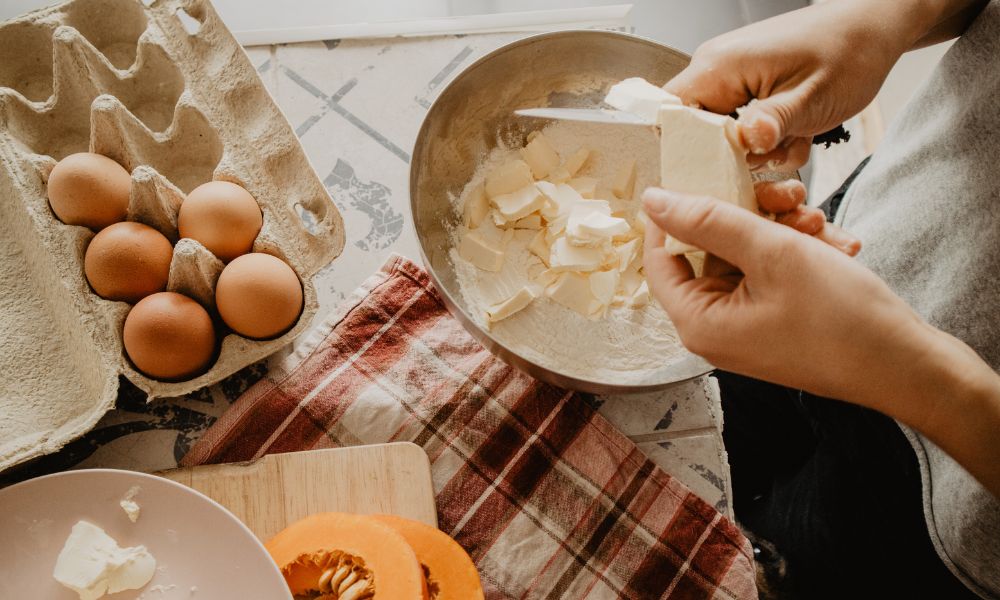
If you love baking, you can use the extra vegetable oil you’ve got in the pantry! Olive oil, for instance, is a great substitute for butter and eggs.
If you ever find out that your ingredients are lacking for your baking needs, vegetable oils can be a good substitute.
04 As Skincare

Oils extracted from plant seeds can benefit your skin.
Nut oils such as almond and peanut oil can revitalize your hair, along with your skin’s outer layer. Aside from being anti-inflammatory, nut oils are also notorious for their anti-oxidants.
Sunflower oil and olive oil can also make you glow with their anti-inflammatory and moisturizing properties as well! Sunflower oil in particular is non-comedogenic, so it won’t clog your pores as it moisturizes your skin.
05 As Mayonnaise Ingredients
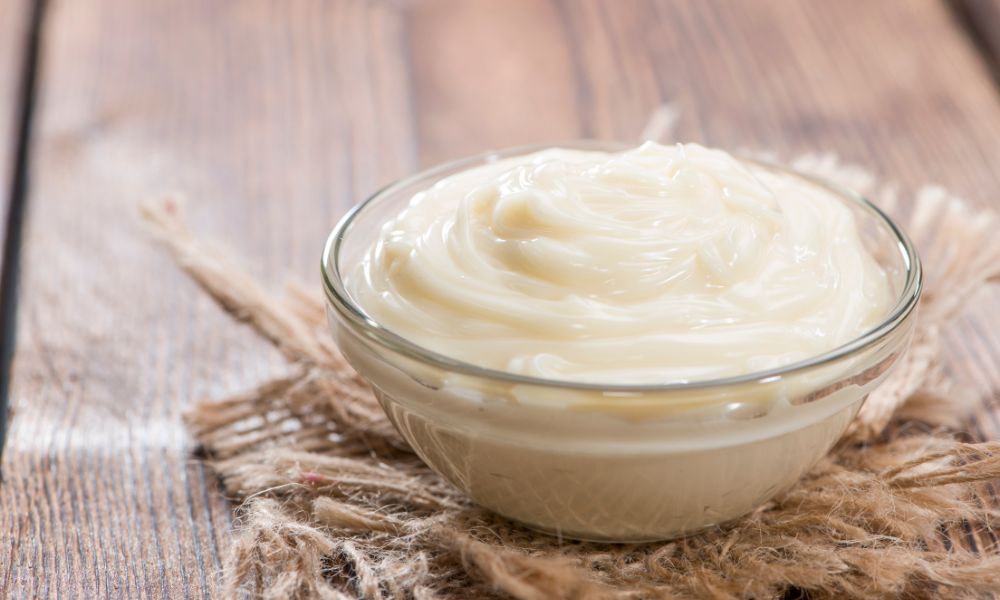
Who wouldn’t love homemade goods? Vegetable oil can also be used to make your very own homemade mayonnaise.
You can use different kinds of oil to make it, too. Sunflower oil, sesame oil, and olive oil all work great to make mayonnaise. All you have to do is make sure that the eggs are the same temperature as the oil, and mix the ingredients well.
Remember: you should be able to tell if vegetable oil has gone bad in your pantry! Using rancid oil for our examples above would be unwise with food safety.
What Can You Do With Expired Vegetable Oil?
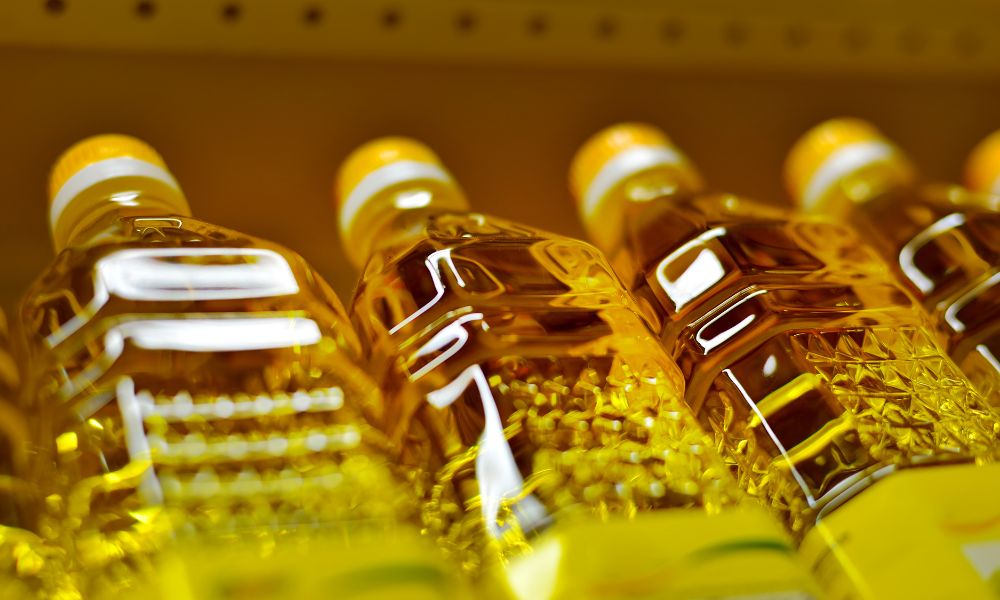
So you do have rancid oil. That doesn’t mean that the only thing left for you to do is to throw it away!
You don’t have to worry about how long vegetable oil lasts if you can reuse it for the following:
01 Protect and Remove Rust from Materials
If you have metal tools and materials you want to keep from rusting, vegetable oil is a good temporary coating.
You can also choose to remove rust with oil. Vegetable oil can take away rust from cast-iron pans quickly!
02 Use as Lubrication
Got squeaky hinges and joints? Douse it with a good amount of vegetable oil and it’ll be good as new.
03 Use as Pest Control
Mix a teaspoon of mild dish soap and vegetable oil with a quart of water. You can drive pests away with the concoction, keeping your skin and your home safe.
If you want to throw away your expired oil, read our article: Safe And Effective Ways On How To Dispose Of Cooking Oil to get more information about disposing of cooking oil.
The Health Benefits of Using Vegetable Oils
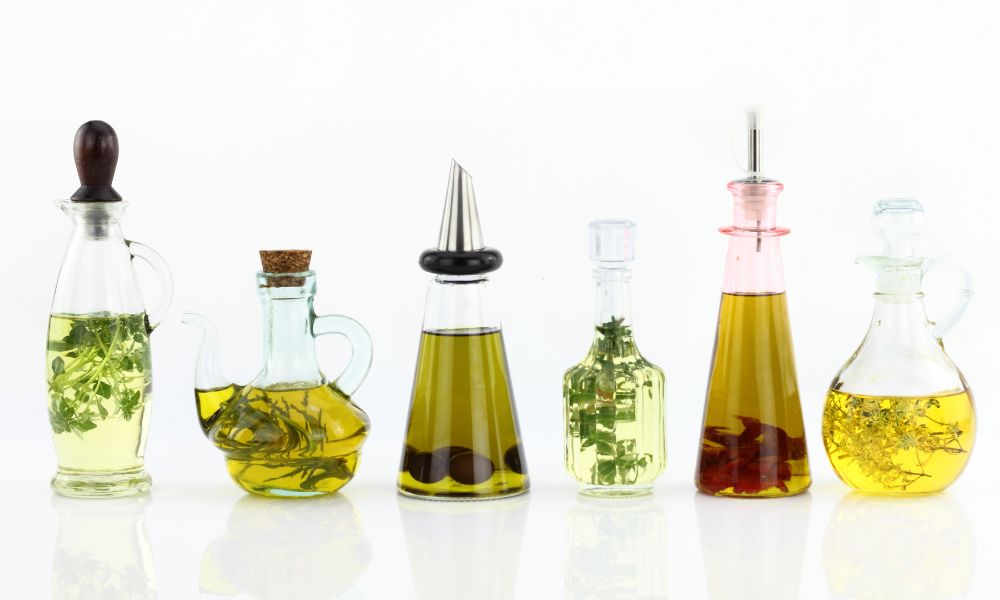
Hesitant to use up your vegetable oil in the pantry? Here are some benefits that may change your mind:
01 Improves Heart Health
There are some heart-healthy oils that you can use! Monounsaturated and polyunsaturated fats in olive oil, canola oil, and safflower oil are some examples. Use them as dressing or for frying!
What you should avoid are hydrogenated oils, which are high in trans fat. They increase the probability of heart disease instead of lowering it!
02 Are Nutrient and Vitamin-Dense
Plant-based oils offer a multitude of nutritional benefits. Vegetable oil, for instance, can be a source of vitamins C, D, E, and K. That’s not counting in the fatty acids you get as well!
03 Brings Out Yummy Flavors
Neutral oils already bring out the best in many dishes. Olive oil, for example, is an excellent, flexible dressing you can have for your salads.
If you want to fancy it up, you can bring out more flavor in your food by infusing your oils with herbs and aromatics. You can make garlic oil for mashed potatoes, or rosemary oil for grilled meats.
04 Promotes Better Metabolism
Some commercial vegetable oils can promote the regulation of your metabolism. A study showed that it also has anti-inflammatory properties.
05 Promotes Better Digestion
There are some oils that can boost your digestion as well. If you have coconut oil that needs to be finished in your pantry, use it for a dish or two. Coconut oil contains those medium-chain fatty acids that metabolize quickly!
Olive oil, meanwhile, can leave you feeling full without causing constipation. It aids in digestion as a lubricant as well.
FAQs
Is It OK To Use Expired Oil?
No, it’s not okay for your health or your dishes to use oil past its expiry date. Find a way to reuse the oil or throw it out!
How Long Is Vegetable Oil Good After Expiration Date?
If there are no signs that vegetable oil has gone rancid, vegetable oil may be good for a month or two after its expiration date. However, it’s still more advisable to buy fresh, new oil instead!
How Long Can You Keep Vegetable Oil After Opening?
Oil is best consumed within two to three months of opening. It’s still best to go by the best-by date and see until when you can use the vegetable oil!
